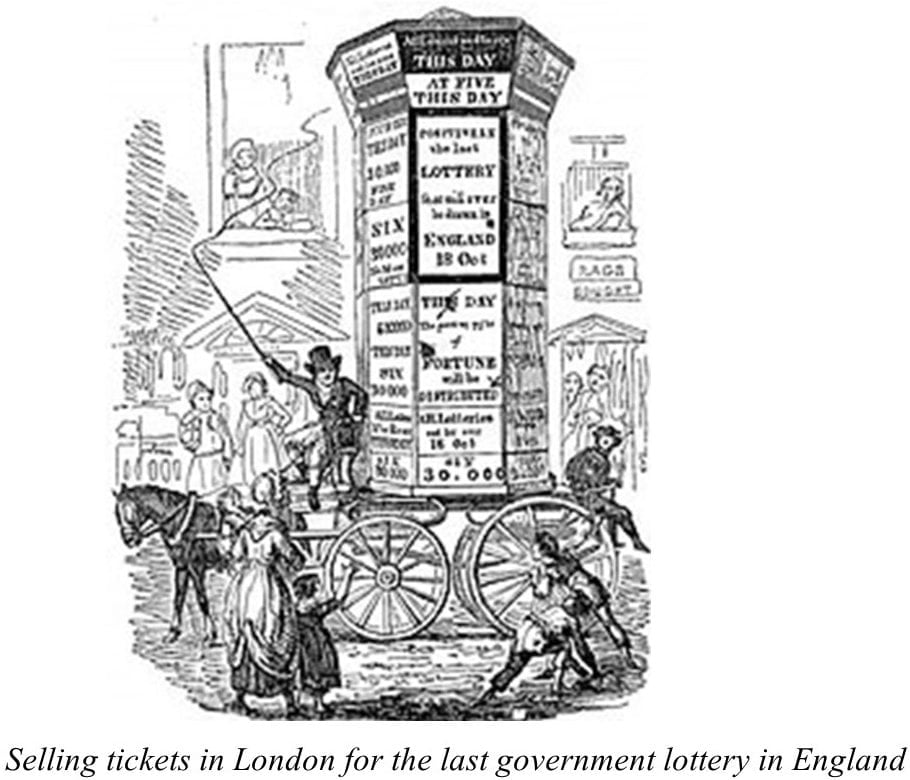
England’s first recorded lottery started on January 11th, 1569, 450 years ago.
Where did they start?
They started in China around 200 BC, to fund major projects, such as building the Great Wall of China.
Then the Romans used them
However, to Romans lotteries were a game played at dinner parties. Well, that was until Augustus Caesar, the Roman Emperor, needed money to repair Rome, suddenly, realised that there was easy way to raise money!
By the Middle Ages they were more popular than taxes!
In the middle ages, towns such as Ghent, Utrecht, and Bruges, in the Low Countries, used lotteries to pay for fortifications, buildings and help the poor. By the 17th century most Netherlands towns were funding themselves by lottery, as they were popular, but the real reason was that it was a painless way to tax people!
Then the King of France had a problem
It didn’t always work, in the 1539 King Francis I of France thought it was a super way to raise money and solve his country’s financial problems. However, it was a fiasco, the tickets cost too much and those who could pay, opposed it, which meant that for the next two centuries lotteries in France were forbidden, but occasionally tolerated!
Finally, it came to England!
To England, January 11th, 1569 was the date that our government decided to sell the rights to trade lottery tickets to brokers, they in turn hired agents to actually sell them. These brokers were the first financial traders who eventually evolved into the modern day stockbrokers. Why, because people could not afford a lottery ticket, they were too expensive, so the brokers sold share in the tickets. Think of what it has led to today, are shares still a lottery?
The English Lottery ran for over 250 years, until the government, under constant pressure from the opposition in parliament, declared a final lottery in 1826.
However, there is a difference between today’s National Lottery and other lotteries and that is that it isn’t used to fund our government, it goes to charities. Well it does at the moment!
Isn’t History fun!
10 questions to discuss:
- How did lotteries originate in China, and what purpose did they serve?
- What significant event led Augustus Caesar to utilize lotteries in Rome?
- In what ways did lotteries become more prevalent than taxes during the Middle Ages?
- Why were lotteries in France forbidden for two centuries following King Francis I’s attempt to raise money through them?
- How did the English government implement the first recorded lottery in England on January 11th, 1569?
- What role did brokers play in the English Lottery, and how did they contribute to the evolution of modern financial trading?
- Why did the English government decide to end the lottery in 1826?
- What distinguishes today’s National Lottery in England from historical lotteries in terms of its purpose?
- Can you name some examples of significant projects funded by lotteries in the Netherlands during the 17th century?
- How have lotteries evolved over time, and what role do they play in modern society beyond funding government projects?
For more on lotteries:
https://www.pinnacle.com/en/betting-articles/educational/the-history-of-lotteries/Z5YJXP3HEG45YM3Z
https://www.history.com/news/8-notable-lotteries-from-history
https://alvin-almazov.com/theory/the-history-of-lottery-interesting-things-for-you-to-know/
© Tony Dalton

